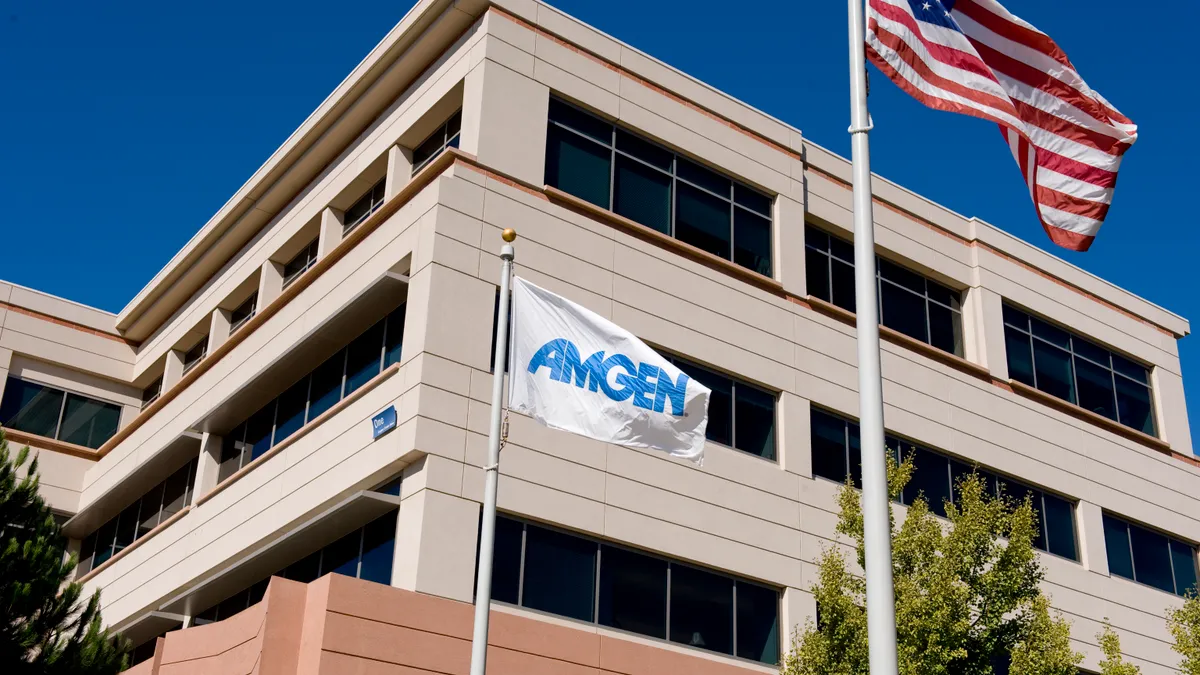Dive Brief:
-
Amgen has struck a deal to use Adaptive Biotechnologies’ clonoSEQ Assay to assess minimal residual disease (MRD) across its hematology portfolio, the companies said Tuesday.
-
Adaptive will use the next-generation sequencing-based test to provide Amgen with MRD data to support multiple clinical trials in return for undisclosed fees and milestones.
-
Amgen is currently running more than 25 hematology clinical trials, leading Cowen analysts to conclude the agreement could increase Adaptive’s revenues above current forecasts.
Dive Insight:
Amgen and Adaptive have contributed to the emergence of MRD as an important part of treating patients with hematological disease. MRD describes the presence of previously undetectable levels of cancer cells found in patients who are in remission following treatment. The presence of these tiny numbers of cancer cells is associated with increased risk of relapse.
Last year, FDA approved Amgen’s Blincyto in the treatment of acute lymphoblastic leukemia patients with MRD. Months later, Adaptive, which worked with Amgen to develop clonoSEQ in the detection of MRD, received De Novo designation for its assay in the identification and monitoring of patients with the lingering cancer cells.
The latest deal expands on the existing relationship between Amgen and Adaptive. Rather than use clonoSEQ in certain clinical trials, Amgen will now have the chance to apply the technology across its full portfolio of hematology programs.
Adaptive will perform MRD testing and analysis. In return, Amgen will pay annual development fees, sequencing payments and regulatory milestones that could amount to a notable source of revenues for Adaptive.
"While specific financial terms were not provided, this clearly represents an incremental source of revenue upside to our model," analysts at Cowen wrote in a note to investors.
That conclusion is underpinned by a review of Amgen’s hematology pipeline. The Cowen analysts found more than 25 ongoing, Amgen-sponsored clinical trials in hematology indications such as acute lymphoblastic leukemia and multiple myeloma. Those trials are expected to enroll more than 3,500 patients.
News of the deal comes shortly after Adaptive began trading on Nasdaq. The company raised net proceeds of $321 million to fund activities including the commercialization and marketing of its clinical products and services. Adaptive posted revenues of $22.1 million in its first quarter as a public company.










